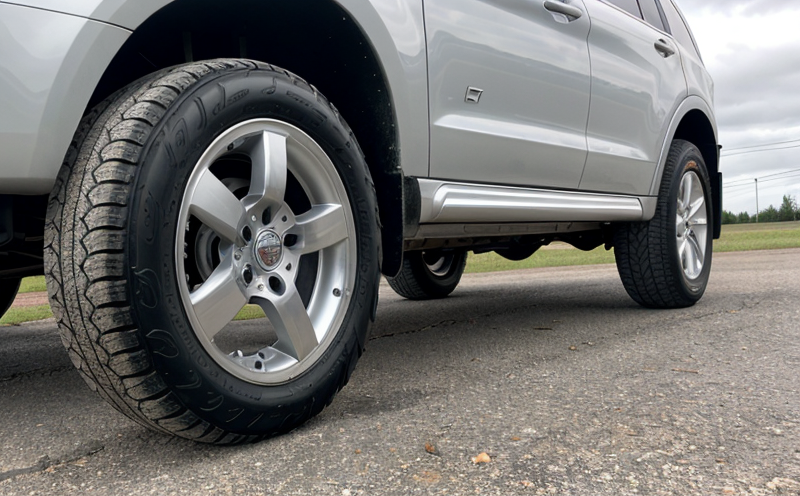EN 13262 Residual Imbalance Testing of Wheels
The European Standard EN 13262 specifies methods for the determination and reduction of residual imbalance in railway wheels. This standard ensures that wheelsets meet stringent quality requirements, which is critical for the safety and performance of railway vehicles.
Residual imbalance refers to the distribution of mass within a wheel that does not contribute to its rotational symmetry. An imbalanced wheel can cause excessive vibrations, increased wear on bearings and other components, and may lead to operational issues such as reduced reliability and efficiency. The EN 13262 standard provides a systematic approach to measure and mitigate these imbalances.
The testing process involves several key steps: preparation of the wheel, installation onto the balancing machine, measurement of imbalance, and correction through specific weight adjustments or re-balancing procedures. This ensures that wheels meet the specified tolerances as defined by EN 13262.
Our laboratory adheres strictly to this standard, providing comprehensive testing services that include not only compliance checks but also advanced analysis capabilities. We use state-of-the-art balancing machines and software tools to ensure precision and accuracy in our measurements. Our team of experts ensures that all wheels tested are within the specified limits outlined by EN 13262.
The importance of this testing cannot be overstated, especially in high-speed railway applications where even small imbalances can have significant implications for passenger safety and vehicle performance. By adhering to this standard, we contribute to a safer transportation environment while also ensuring compliance with international regulations.
Our laboratory is equipped with the latest technology and experienced personnel who are well-versed in performing EN 13262 tests. We offer flexible testing schedules that accommodate various client needs and ensure timely delivery of results. Our commitment to quality, accuracy, and reliability makes us a trusted partner for railway manufacturers and operators.
Why It Matters
The safety and efficiency of railway systems are directly influenced by the quality of components like wheels. Ensuring that these components meet stringent standards such as EN 13262 is crucial for preventing accidents, reducing maintenance costs, and extending the lifespan of vehicles.
Residual imbalance in wheels can lead to increased friction, higher operating temperatures, and premature wear on bearings and other critical parts. This not only increases operational costs but also poses significant safety risks. By adhering to EN 13262, we help our clients maintain optimal vehicle performance and reduce the risk of accidents.
The standard’s emphasis on precision balancing ensures that wheels operate smoothly under all conditions, which is particularly important for high-speed trains where even minor imbalances can cause significant vibrations. These vibrations can affect passenger comfort, structural integrity, and overall system stability.
Furthermore, compliance with EN 13262 helps railway operators meet international safety standards and regulatory requirements. This not only enhances their reputation but also ensures that they are prepared for any potential audits or inspections.
Benefits
- Enhanced Safety: Reduced risk of accidents due to improved wheel performance and stability.
- Increased Efficiency: Lower operating costs through reduced wear on components and decreased energy consumption.
- Prolonged Lifespan: Extended service life for wheels and related components, resulting in cost savings over time.
- Better Passenger Comfort: Smoother ride quality due to reduced vibrations and oscillations.
- Compliance with Standards: Ensures that products meet international safety and performance standards.
Use Cases and Application Examples
| Use Case | Description |
|---|---|
| New Wheel Manufacturing: | Testing new wheel designs to ensure they meet the specified imbalance tolerances before mass production. |
| Reconditioning Wheels: | Ensuring that wheels being reconditioned are brought back within acceptable imbalance limits. |
| Preventive Maintenance: | Detecting and correcting imbalances early to prevent further deterioration of the wheel. |
| High-Speed Train Operations: | Ensuring that wheels operating in high-speed environments are free from excessive imbalance. |





